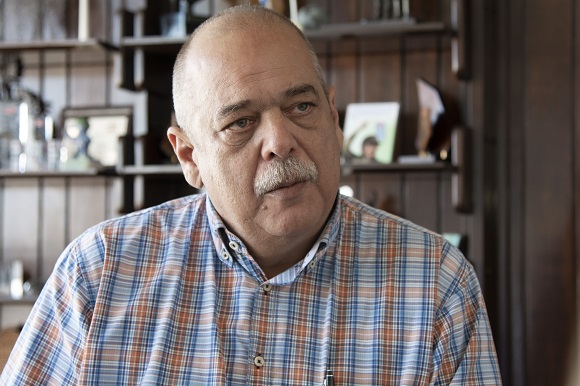Given the proximity of the hottest months of the year and the current situation of the national electrical system, users of Cubadebate ask if it will be possible to comply with the strategy outlined in Cuba to reduce blackouts on holidays, a period that coincides with high levels of demand.

Concerns also persist over the nation's fuel deficit.
In statements to Cubadebate, the Minister of Energy and Mines, Vicente de la O Levy, commented on the actions carried out to increase the generation of electricity in the country and normalize the sale of fuels in service centers.
According to the minister, from the end of 2022, actions were conceived to increase generation.
“These tasks were carried out sacrificing power that was available, with the aim of increasing maintenance work and gradually reducing actions against breakdowns,” he explained.
De la O Levy pointed out that these tasks were carried out under the worst conditions for the supply of spare parts, resources and raw materials because of not having access to financing or suppliers, due to the intensification of the blockade and the inclusion of Cuba in the arbitrary list of countries that support terrorism, produced by the US Department of State.
The minister highlighted that, in the midst of these difficulties, the results of the maintenance and recovery of powers that have been out of service for some time have allowed a decrease in the effects.
"The end of the year was much better than the previous months, and in January and February the damage was minimal," he recalled.
“Starting in February, we further increased the maintenance load, removing units such as Céspedes and Felton to meet this objective. In this condition, and having these fundamental units out of the system, the average number of hours affected was less than three hours, and the scheduled blocks could be rotated every four days, except for the days when the system was totally disconnected.
"There were 4 occasions, as a consequence of the fires under the transmission lines and how weak the national electrical system was."
De la O Levy referred to two situations that arose recently and generated complications: the failure in the fuel supply due to the shortage of suppliers (400 MW out for this reason) and the exit of the Guiteras thermoelectric plant due to a major failure.
"This new situation lengthened the hours of affectation in the electrical service in almost the entire country," he said.
Despite these problems, the Minister of Energy and Mines assumed that all the actions planned for the recovery of the national electrical system have been fulfilled and that it is expected to face the summer in better conditions.
He specified that among these actions are "the maintenance of Felton 1, the recovery of unit 6 of Mariel, the maintenance at the Cienfuegos thermoelectric plant, the power recovery of the Mariel and Moa engines, the elevation to 300 MW of the generation of Energas, the recovery of more than 600 MW in distributed generation and the incorporation of new fuel oil engines (100 MW)”.
Regarding the effects on Energas, he said that "after several days with more than 300 MW of generation, for having drilled a first well of three that are giving us more than 200,000 m3 of gas; last Sunday, a failure occurred that took all its generation units and limited the manufactured gas intended for the population in the capital”.
He added that "the service was restored immediately and power has been recovered, until next week, when it will be delivering the 300 MW again."
De la O Levy stated, “With these two issues resolved, Guiteras and Energas, before the end of May we forecast a considerable decrease in the effects and a few summer months in better conditions.
"Daily, our people have been kept informed about the situation of the national electrical system and each of these actions."
In his dialogue with Cubadebate, the minister also addressed the situation of the distribution transformers, which suffered damage during Hurricane Ian and which are being gradually replaced, with priority for strategic sectors such as agriculture.
"As a consequence of Hurricane Ian, in whose path more than 1,000 distribution transformers were destroyed, it was decided, in addition to take from the state reserve, to use those that were in centers of the economy to install them and provide service to the population," he explained.
He reported that raw material for the national production of transformers is currently arriving in the country, "and with this, gradually replace those that were taken, prioritizing strategic sectors such as agriculture."
The minister emphasized the support provided to the UNE by the Armed Forces, especially the Union of Military Industries and the Union of Military Constructions, and thanked the Government and the PCC for their permanent attention to the progress of these actions.
"Every month the progress of these actions is analyzed in the Political Bureau," he held.
In the midst of this situation, De la O Levy called on the population and sectors of the economy to save electricity and fuel, making rational and efficient use of energy.
Finally, referring to the queues at the service centers and the situation with fuels, he assured that there would be a recovery in that area, which will reduce the uncomfortable queues.
“Thanks to the daily attention, it can also be said that we have not had to go to a zero fuel option, with gigantic financial efforts. It is not just the gasoline and the annoying queues at the service centers; they are gasoline, diesel from service centers and electricity, turbofuel for airlines and not affect tourism income.
"On this fuel issue, we can say that there will be a recovery in activity and a decrease in uncomfortable queues," he concluded.




